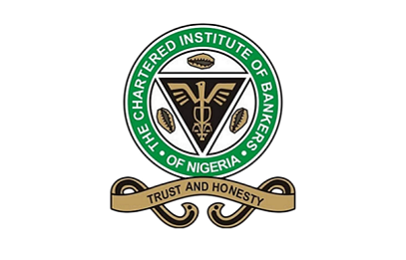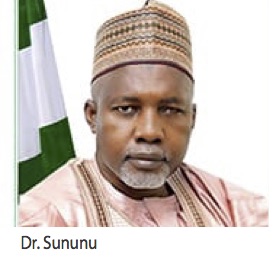News
African Space Economy: ACCI, NASRDA, others to co-host conference in October
Abuja Chamber of Commerce and Industry (ACCI), National Space Research and Development Agency (NASRDA) and MEDIAVIVA Consultancy Limited have concluded plans to co-host the 1st African Space Economy Conference, 2023.
The President of ACCI, Dr Abubarka Al-Mujtaba, while signing the consultancy agreement with both NASRDA and MEDIAVIVA on Thursday in Abuja, said the event would impact positively on governance and the lives of Nigerians.
The News Agency of Nigeria (NAN) reports that the conference and exhibition with the theme, ‘Exploring Space Economy for Africa’s Economic Growth,’ are scheduled to hold from Oct.16 to Oct. in Abuja.
“Space economy, as an emerging sub-sector of the global space ecosystem, denotes and captures the economic benefits of a dynamic space sector and the role space can play in the socio-economic development of the society.
“This new subject is a growing field of application and practice in Europe, North America, and many parts of Asia.
`’Africa is however a late starter as the space economy is still a subject not yet fully appreciated and lacking the requisite policy framework needed for robust facilitation and regulation of the sub-sector.
“The conference is designed to address the real developmental issues in Nigeria and Africa in a way that will positively impact governance and everyone’s life,’’ Al-Mujtaba said.
He listed some sectors which the conference would address to include: Space technology and communication, internally generated revenue (IGR), Internal security, food security and health sector.
Al-Mujtaba said others are: Space technology and the growth of the Tech. Innovation ecosystem, especially in the Fourth Industrial Revolution (FIR).
According to Al-Mujtaba, MEDIAVIVA Limited will ensure the operational and marketing aspect of the event.
He said this would help in fast-tracking the implementation of action plans for the event and further facilitate synergy with the Local Organising Committee(LOC)
On his part, the Director-General of NASRDA, Dr Halilu Shaba, said Africa needed to focus more on emerging trends in the global economy.
Shaba urged that Africa should not be left out in the global space economy which had proven to drive development worldwide.
“We are trying to avoid capital flight. The world is going to space, and Nigeria will not be the last.
“The idea of the conference is to showcase our space industry to the public, as we are focused on liberalising space science and technology.
“We are talking to people to come, people who will benefit from it, and while we stay in our labs and workshops, we are engaging people knowledgeable in the area of commerce to take it further,” he said.
Shaba added that it was time for Nigerians to have fate in space because the conference would address problems in education, security, economy, agricultural, and health sectors, among others.
Mr Israel Edjeren, Chief Executive Officer of MEDIAVIVA, pledged its commitment to ensure the exhibition showcaset he potential of the space industry and of international standard.
Similarly, Dr Matthew Adepoju, Co-Chairman of the LOC said the committee would engage the private sector to leverage the potential in the sector.
News
CIBN backs bank recapitalisation for enhanced economic growth


The Chartered Institute of Bankers of Nigeria (CIBN) has expressed support for the planned recapitalisation exercise for banks in the country.
Ken Opara, President/Chairman of Council, CIBN, expressed this during the 2024 annual lecture of the institute on Tuesday in Lagos.
Opara said adequate liquidity within the banking system was fundamental to fostering sustainable economic growth and development.
He said that the recapitalisation would further help banks to deepen liquidity and guarantee access to credit needed for economic growth and prosperity.
He said that CIBN and the Nigeria Exchange Group (NGX) had formed collaborations toward building capacity for the recapitalisation of banks.
Opara added that the institute was also collaborating with Africa Guarantee Fund (AGF) for capacity building for SMEs, preparing them and building their capacity to access finance.
He called for more allocation of credit to the real sector, which was the foundation of the nation’s economic activities for increased liquidity.
Opara stressed the need for addressing challenges faced by the sector to enhance its competitiveness against foreign counterparts.
To resolve the challenges, he urged the government to improve further the ease of doing business and infrastructural development, such as power, roads, and rail networks.
The CIBN president also called for industrial centres where companies could co-habit and share common infrastructure,
harmonise and reduce the various taxes and levies, including locating them in a single hub.
He said the theme, “Improving Availability of Credit in the Nigerian Real Economy: The Critical Importance of Liquidity”, was timely to address current challenges in the nation.
“As we navigate the complexities of our current economic landscape, it has become increasingly evident that ensuring adequate liquidity within the banking system is fundamental to fostering sustainable economic growth and development.
“The real economy comprises the agriculture, manufacturing, construction, and services sectors and serves as the tangible foundation of the nation’s economic activity.
“These sectors collectively represent the intricate web of goods and services that drive economic growth, create employment opportunities, and enhance the overall standard of living.
“Despite the significant relevance of the real sector, access to credit for such key sectors compared to other climes is relatively low,” he said.
He said a survey conducted in more than 40 economies and released by Statista in 2024 revealed that nearly 141 trillion dollars worth of credit was lent to the real sector in advanced economies in the second quarter of 2022.
He added that the figures were twice as high as the volume of credit to the same sector in emerging markets.
He commended improvements in liquidity within Nigeria’s real sector but called for increased credit to sector, particularly agriculture.
“According to data from the Central Bank of Nigeria (CBN), the Net Domestic Credit stood at 66.4 trillion Naira as of December 2022, showcasing the substantial credit extended by financial institutions to the real sector of the economy.
“This figure experienced a significant surge to 96.1 trillion Naira by December 2023, highlighting the tremendous potential for growth and development in the real sector,” he said.
He listed credit volume allocated to the key sectors, saying the Agricultural sector had N5.8 trillion representing about six per cent of the total credit.
He said the manufacturing sector had N19.7 trillion, representing approximately 21 per cent of the total credit, while the services sector had N36 trillion, representing 37.4 per cent of the total credit.
“I humbly propose that we consider offering more credit to these key sectors and particularly the agriculture sector.
“It is for this reason, ladies and gentlemen, that the recapitalisation exercise is a welcome development.
“The recently announced upward review of the Minimum Capital Requirements of Nigeria by the Central Bank of Nigeria would further empower banks to extend more credit to the economy’s productive sectors,” he said.
The Guest Speaker, Prof. Graham Penn, speaking on the theme, explained how other developed countries were leveraging on credit and the need for Nigeria to increase liquidity for economic prosperity.
Penn, a professor of International Finance Law at University College London, listed challenges and measures Nigerian banks, regulators and businesses could adopt to implement laws and regulations to facilitate true sale securitisation.
News
NERC transfers regulatory oversight of electricity market in Ekiti to state govt


The Nigerian Electricity Regulatory Commission (NERC), says it has transfered regulatory oversight of electricity market in Ekiti State to the state Electricity Regulatory Bureau (EERB).
News
Minister summons Lead British Int. School over bullying allegation


-
Finance3 months ago
Court orders Sen. Victor Umeh to repay N136m bank debt to AMCON
-



 Abuja Update2 months ago
Abuja Update2 months agoUNDP, FG partnership needed to achieve inclusion, equity- Minister
-
Abuja Update4 weeks ago
Banks drive stock market performance with N147bn gain
-



 Infotech3 weeks ago
Infotech3 weeks agoWorld Backup Day: NITDA urges Nigerians to ensure backup of data
-
capital market2 years ago
Rt.briscoe, FBNH, Others halts negative performance of stock market
-



 Health2 weeks ago
Health2 weeks agoImmunisation: FG, GAVI seek synergy with Sokoto Govt.
-
Infotech2 weeks ago
Forex for Beginners: Unveiling the currency exchange and how to trade it
-
Submission Guidelines4 months ago
CALL FOR SUBMISSIONS: POETRY COLUMN-NND








